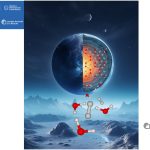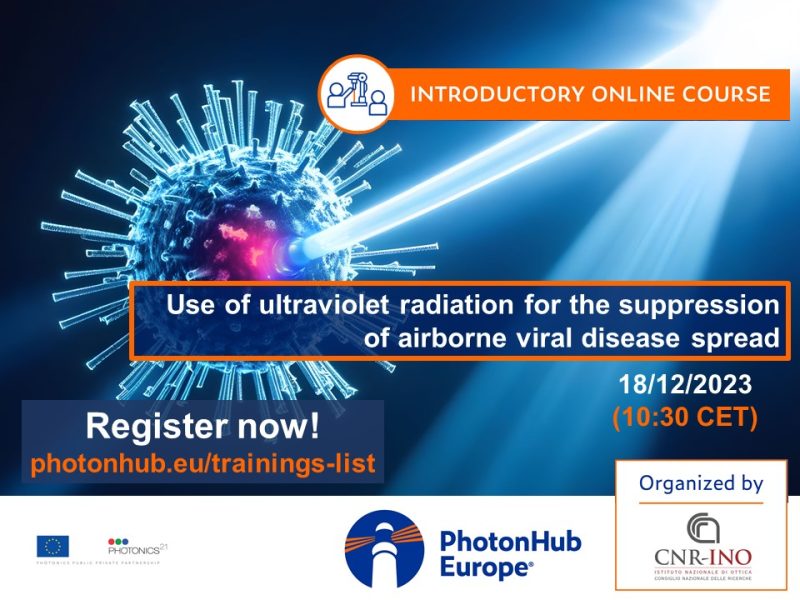
Christmas Lecture 2023: an opportunity to share the results of CNR-INO research
December 15, 2023
High-Pressure Physics Led to the Most Hydrogen-Dense Filled Ice
December 29, 2023The free Online Training on Use of ultraviolet radiation for the suppression of airborne viral disease spread is postponed to Monday, December 18th, at 10.30.
The training will be held by our Researcher dr. Guido Toci.
The use of light for sterilization is very well known in the scientific literature. However, the recent pandemic outbreak and the antimicrobial resistance issue required new light sources for preventing viral epidemic spread, as an alternative to the use of chemicals and drugs.
Usually, sterilization is obtained by using ultraviolet light at short wavelength (UVC), and the most commonly used light sources are Mercury (Hg) discharge lamps, but the use of these devices is limited because they harm the skin and eyes of human beings.
Recently a new technology for generation of biocide UVC light has been based on ‘excimer lamps’, whose optical penetration in biological media and living tissues is limited to a few micrometers, thus being safe for the skin and the cornea.
We have developed sterilizing devices based on excimer lamps, that can be used in presence of persons. These new devices irradiate the air in the room with the new lamps, thus killing the viruses and bacteria transported by the airborne small droplets of saliva produced by ill persons when breathing, talking and coughing, and reducing their transmission to healthy persons nearby.
We are also verifying the potential of these new UVC light sources as barriers to the spread of airborne viruses and bacteria such as Staphylococcus aureus, Pseudomonas aeruginosa and in Sars-Cov-2. The results point out a strong antimicrobial effect, and we have patented a device that acts as a light barrier for preventing contamination.
The training is organised in the framework of the project PhotonHub Europe.
PhotonHub has received funding from the European Union’s Horizon 2020 research and innovation programme under the Grant Agreement n. 101016665, in Public Private Partnership with Photonics21.





